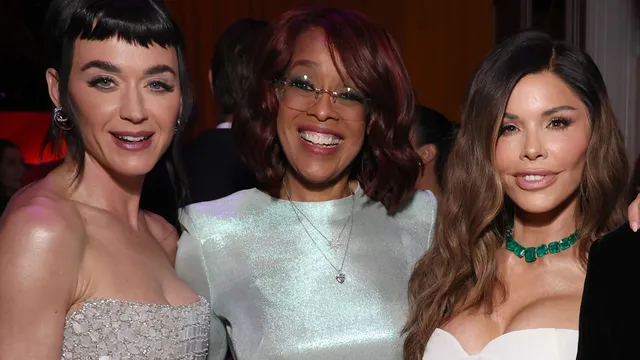
Katy Perry sings in space during historical all-female mission
2025-04-14 14:39- Katy Perry participated in an all-female crew for Blue Origin's spaceflight, which included notable figures like Lauren Sanchez and Gayle King.
- Prior to the launch, Perry expressed her dreams of singing in space, and after landing, she confirmed that she performed 'What a Wonderful World.'
- This mission represented a historic milestone for women in space and aimed to inspire future generations.
Express your sentiment!
Insights
On April 14, 2025, singer Katy Perry took part in an all-female space mission aboard Blue Origin's New Shepard NS-31. This marked a significant moment in history as it represented the first female-only space mission in over sixty years. The mission included prominent figures such as Jeff Bezos's fiancée, Lauren Sanchez, and TV host Gayle King, and aimed to inspire women to dream big while showcasing female empowerment in a traditionally male-dominated field. Prior to the flight, Perry shared her excitement with fans through social media, expressing her long-held dream of singing in space, which she confirmed later on the mission. After the spacecraft safely returned to Earth, King revealed that Perry indeed performed 'What a Wonderful World,' a song she had previously covered, emphasizing the significance of the moment. During her journey, Perry conveyed feelings of gratitude and wonder, indicating that being in space provides a perspective that encourages people to embrace the unknown. This mission not only paved the way for future female representation in space travel but also celebrated the achievement of collective courage and inspiration among women in various fields throughout history.
Contexts
The history of women in space exploration is a remarkable narrative that spans several decades, showcasing significant milestones and the relentless pursuit of equality in a predominantly male-dominated field. The journey began in the early 20th century but gained significant traction during the Space Race of the 1960s. Pioneering efforts were marked by women such as Valentina Tereshkova, who in 1963 became the first woman to fly in space aboard Vostok 6, a vital achievement that inspired subsequent generations of female astronauts. Her mission demonstrated that women could undertake the rigorous demands of space travel, paving the way for increased opportunities for women in science and aerospace fields globally. The achievements of Tereshkova and others highlighted the need for gender representation and equity in space exploration, a theme that continues to evolve today. Shortly thereafter, NASA began actively recruiting women, leading to the selection of the first American women astronauts, including Sally Ride, who became the first American woman in space in 1983, and Judith Resnik, who followed her on the Space Shuttle Challenger. These milestones were crucial, not only for their scientific contributions but also for challenging societal norms about women's roles in science and technology. This era marked a turning point, as women began to assume key positions in the space community, participating in missions, research, and operations that had historically been reserved for men. Over the following decades, women's participation in space exploration continued to grow, with NASA and other space agencies around the world increasingly recognizing the value of diversity in their programs. Women like Mae Jemison, the first African American woman in space, and Eileen Collins, the first female Space Shuttle commander, exemplify the expanding opportunities for women in space exploration. The 21st century heralded a new phase of exploration, with missions to the International Space Station (ISS) seeing women play significant roles both as crew members and in mission control. The Artemis program aims to land the first woman and the next man on the Moon by the mid-2020s, further illustrating the ongoing commitment to gender equity in space. Today, the landscape of space exploration is more diverse than ever, with women leading important initiatives in science, engineering, and research. Organizations and academia have also stepped up to promote STEM education among young women, encouraging future generations to pursue careers in space. The history of women in space exploration is a testament to resilience and the fight for representation, and it serves as an inspiring narrative that continues to unfold as new pathways are forged. As we look to the future of space exploration, the contributions of women will undoubtedly play an essential role in shaping humanity's next steps in the cosmos, fostering a culture of collaboration and inclusivity that ensures all voices are heard and valued in this exciting frontier.